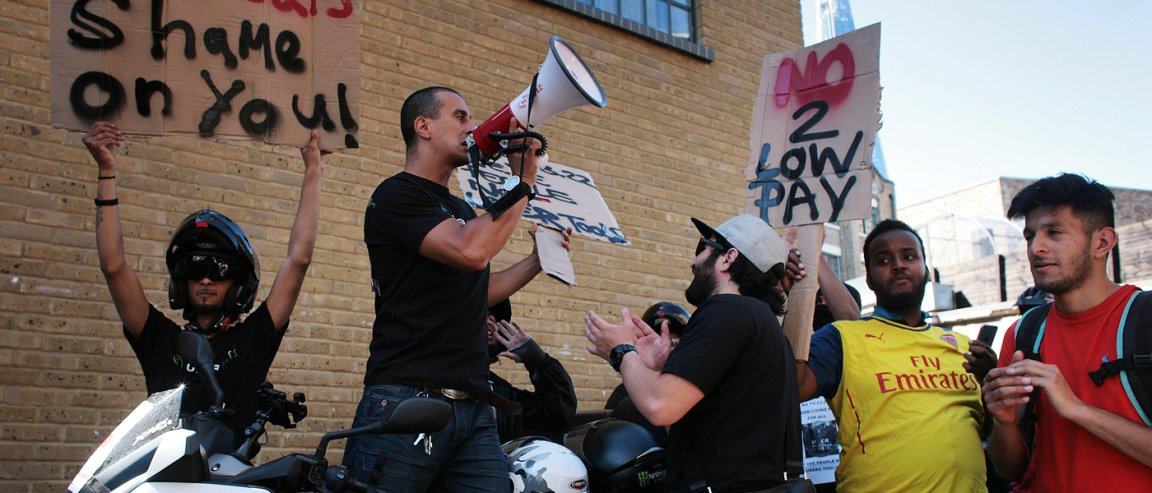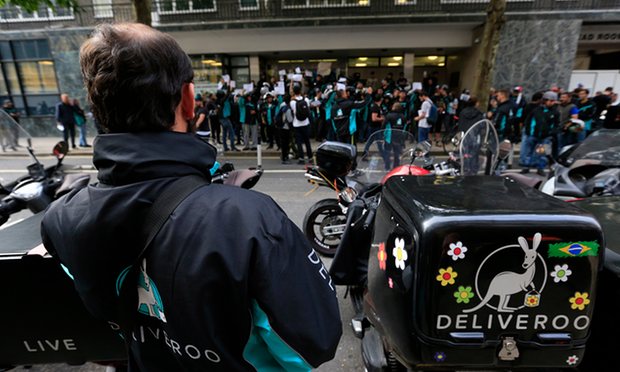
Gig Economy
Services like Uber seem to be the future of transport as we know it. Aside from wresting control of transport from big, established companies, it allows efficient pairing of drivers and passengers. Also, these services allow drivers more flexibility in choosing work schedules.
However, this model just hit a speed bump, after several lawsuits have been filed against Uber, Deliveroo, and other such services. The lawsuits criticize the companies for unfair labor practices, regarding wages and work times. This begs the question: Does the gig economy work?

The model these companies use is simple. Drivers or couriers log in to the app, choose a request they want to work with, and complete the task, whether it be a delivery or a trip. This freedom to choose when to log in has allowed drivers to use Uber and other services as effective part time, “self-employment,” jobs.
The Dilemma
Protesters are arguing that these companies unfairly compensate their workers, who can have their wages cut by simple app updates and be terminated for not meeting an algorithm’s standard.
For example, the Deliveroo debacle in London started when the company planned to slash wages from £3.75 per delivery instead of an hourly rate of £7 plus £1 per delivery.
Now the protesting couriers have taken the company to court, arguing that they should be treated as employees entitled to the minimum wage, sick and holiday pay, as well as regular benefits.
This brings to light the problem of the gig economy: how to treat the people delivering the service. The workers want the safety nets associated with regular employment, but the companies assert that they don’t “hire” the drivers and the couriers, instead merely connect them to the customer. According to the Financial Times, these companies have …”all the power of an employer but none of the responsibility.”
One thing is clear, this is the type of debate technological advances bring to the social sphere. It will ultimately be up to the customers to decide whether or not to continue patronage of these services, questionable practices and all.